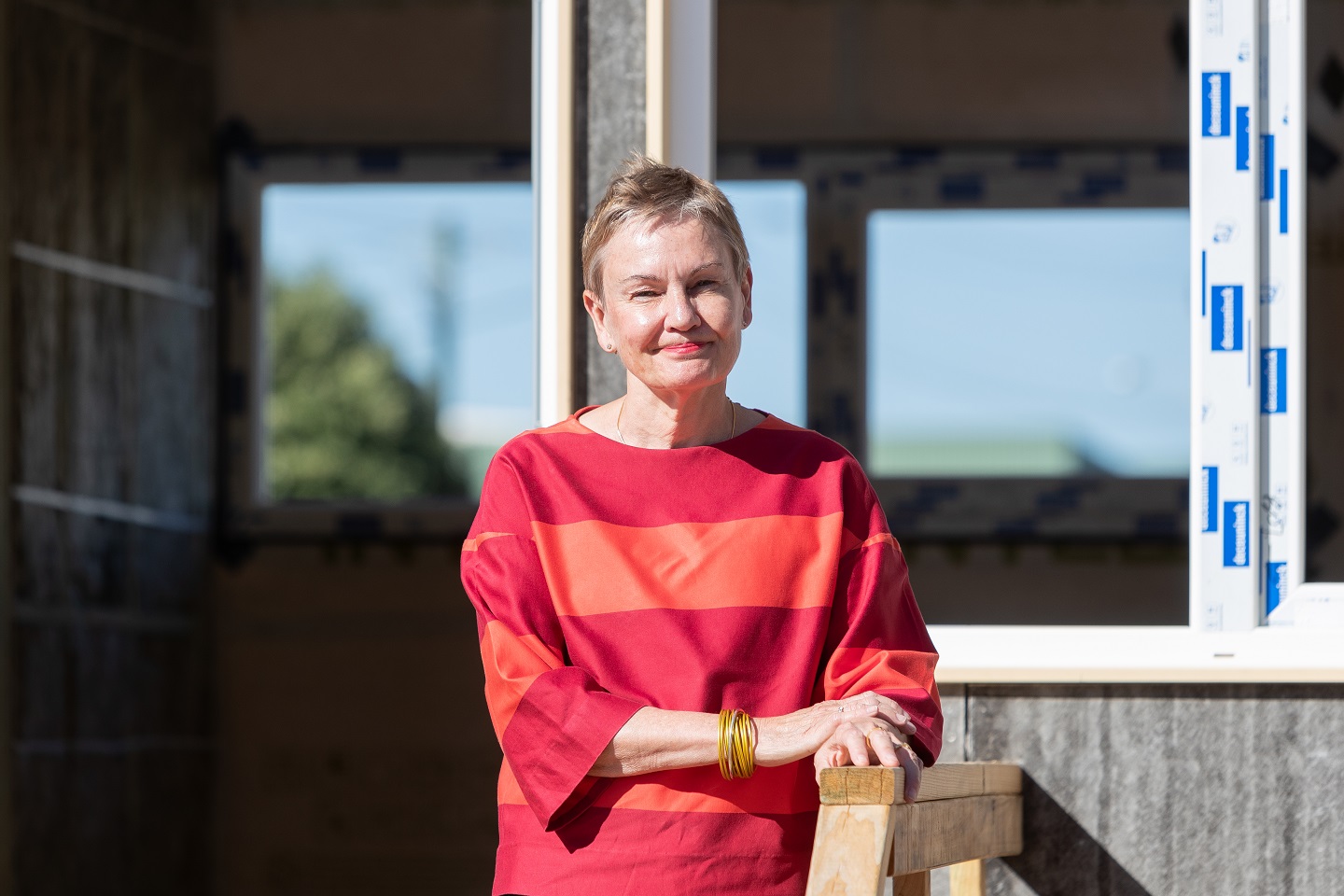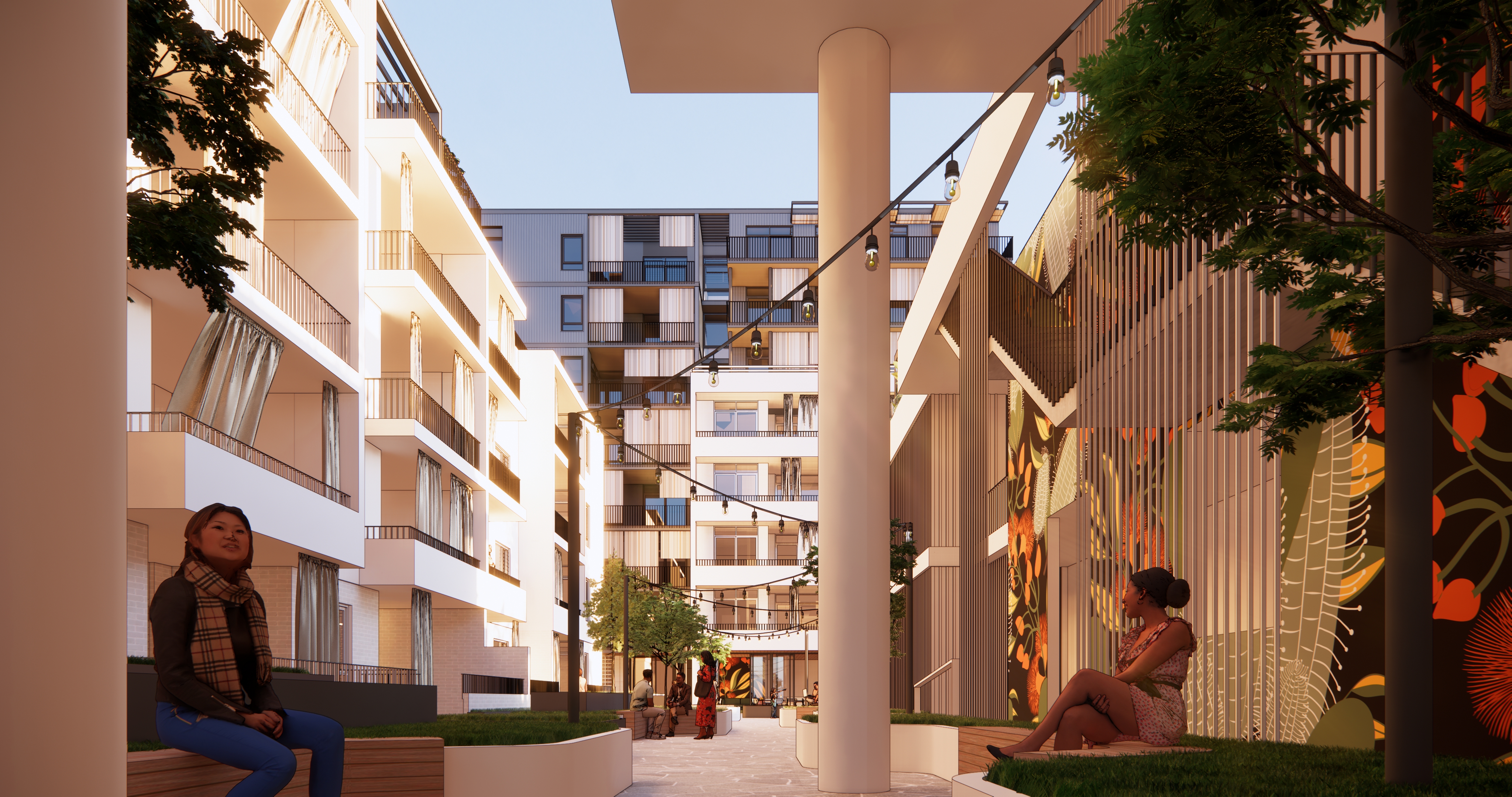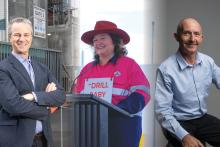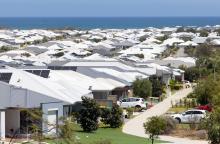Industry leaders are finding ways to address shortfalls in affordable housing and homeless accommodation.


The rising cost of living and housing supply pressures are contributing to an increase in homelessness and dependence on social housing.
While government investment in these areas has grown, the private sector has a role to play in leveraging government funds and devising its own projects to house society’s most vulnerable.
Ruah Community Services data shows more than 1,000 people are homeless and 500 people are sleeping rough each night in Perth, Fremantle and surrounds.
Social housing waiting lists are increasing month on month, with the latest figures from Shelter WA showing 32,873 people, or 18,738 households, were on social housing waiting lists in March.
This is a 2.5 per cent, or 806-person increase on January this year.
Major players in Western Australia’s property industry are seeking ways to address these issues, mainly through partnerships with government, charities and institutional investors.
As Hesperia director Ben Lisle explained, industry’s focus needed to be on the spectrum of housing options.
“At one end of that spectrum is the growing problem of homelessness in our community,” Mr Lisle told Business News.
“You will never solve homelessness unless you solve the upstream non-market supply of affordable housing, because people have nowhere to go long term if we don’t have that non-market supply.”
Mr Lisle said outside of energy and sustainability, the three key issues facing the property sector were skills, health and mental health, and social and affordable housing.
A recent National Housing Finance and Investment review found that $290 billion would be needed to meet Australia’s shortfall in social and affordable housing in the next two decades.
Modelling by UNSW Futures shows that, by 2036, WA will need an additional 118,400 social and affordable houses of more than 1 million required nationally.

A render of My Home's North Fremantle housing project.
Private partnerships
One of the state’s largest affordable housing developers, Foundation Housing, has brought 160 housing units to the market during the past three years.
In addition, it recently received development approval for a 121-dwelling apartment complex in Como and is progressing a similar application in East Victoria Park.
Chief executive Chris Smith told Business News the reliance on social housing had increased during his three years leading the organisation.
“When housing supply really becomes constrained, the first people to suffer are those who are relying on social affordable properties,” Mr Smith said.
Mr Smith recently signed a term sheet with an institutional investor to bring $200 million of capital to fund more than 400 affordable housing units for key workers over two years.
He highlighted Scarborough, Murdoch and Subiaco as areas to bring on key worker accommodation.
Foundation Housing is also working with land developer Peet to acquire a portfolio of properties from its Wellard estate as social housing and is in talks with developers to help deliver its Como project.

Foundation Housing's proposed $35 million Como apartments.
Michelle Blakeley runs her own architecture firm and chairs My Home, which partners with public and private investors to create housing for vulnerable Western Australians.
My Home acts as a philanthropic developer, with the private sector funding tax deductable donations or providing materials to its projects.
The group is part-way through constructing its first project in North Fremantle, which will accommodate 18 women who are currently homeless.
Ms Blakeley told Business News addressing homelessness was too big an issue for one facet of society to address.
“It is going to require a lot of money to make a dent,” she said.
"You can’t expect the government to do it all by itself, but you can’t expect the private sector to either.
“A lot of it is how the money is spent, getting the best bang for your buck, because a lot of money from government is spent on services and short-term fixes, like a band-aid fix, rather than a long-term fix.
“You need to find a solution that doesn’t rely on builders and developers making money.”
Perron Group managing director Ross Robertson is working with Ms Blakeley via his role in Emplace, a Rotary Club initiative that brought together business leaders to find solutions to homelessness.
The Perth City East Rotary Club immediate past president told Business News he was compelled to act on the issue after observing the socioeconomic inequalities in Perth.
“One of the things I think everybody who lives in this city is confronted with is the fact that we’ve got 1,000- plus people sleeping on our streets, and we’ve got another 10,000 people precariously housed [who are] couch-surfing,” Mr Robertson said.
“Contrast that with the fact that we’re in a very rich resources city; it doesn’t make a lot of sense.”
He said Emplace was planning to develop proven models to address the shortfall in affordable and homeless accommodation.
MinterEllison partner and property lawyer Lee Rossetto is the WA chair of Housing All Australians, a charity that works with the private sector to deliver affordable housing.
Mr Rossetto said one of the organisation’s major purposes was to educate business about the importance of funding such developments.
“We’re very different to other charities in that we’re a private sector initiative and we look at affordable housing, through a commercial lens,” he said.
Mr Rossetto said the group was creating ‘respectful unrest’ within the private sector on housing affordability and homelessness.

Lee Rossetto is working to educate the private sector about the importance of addressing homelessness.
Housing All Australians is set to release economic modelling on the long-term cost to Australia if government and industry does not provide sufficient social and affordable housing.
“Once business understands the issue and the implications to the future prosperity of business in Australia, then solutions will have to be found,” Mr Rossetto said.
“Business needs to be at the front and lead the conversation.
“We can’t afford to wait for government; business has to take a lead role in this conversation and come up with some solutions that are viable and commercial.”
Housing All Australians is working on projects to create beds for homeless people, focusing on the fastest growing cohort of those without homes: women over 55.
The group is working with law firms, planners, architects, surveyors, geotechnical and heritage consultants, builders and material suppliers to deliver housing products.
Mr Rossetto said the organisation was close to getting planning approval for a development near Perth to help provide accommodation for homeless women.
He said the group was also exploring ways to convert underutilised buildings into short-term accommodation for the homeless.
Residential solutions
National not for profit Homes for Homes, which uses property sale proceeds to fund social housing projects, recently paired with DevelopmentWA on two estates run by land developer LWP Group.
Purchasers of properties at the land developer’s Kara estate in Treeby and Mahala in Forrestdale were invited to donate 0.1 per cent of future sales to Homes for Homes.
DevelopmentWA estimates these homeowner contributions are expected to reach $3.3 million over 30 years.
Homes for Homes national operations manager Tracy Longo explained that the organisation was launched in 2015, based on an initiative by Californian developer Lennar Homes.
“Our economic modelling shows that we’re on track to raise over $1 billion by 2050,” she said.
“We have over 16,000 properties in our pipeline, through partnerships with the property industry, which means as those projects settle, they’ll register and come on board with Homes for Homes.”
LWP managing director Brendan Acott said Homes for Homes was an effective funding mechanism for the sector, showing that $1 in funding could unlock up to $8 in further funding for the community housing sector.
He said the multiplier effect was achieved by Homes for Homes quite often providing the 10 to 20 per cent equity needed for a housing project to secure its further finance.
Homes for Homes has also paired with LWP on estates in Ellenbrook and Casuarina.
Major residential builders ABN Group, BGC Australia and JWH Group each work with the Department of Communities to deliver social housing.
ABN Group managing director Dale Alcock told Business News his company supported non-for-profit groups around homelessness and disability through its Alcock Family Foundation.
“Non-government organisations have a critical role to play in supporting those in need of housing, especially our most vulnerable, and private companies have the opportunity to provide funds and business backing,” he said.

A BGC affordable housing development in Balga.
JWH Group general manager Jay Walter said his company was particularly focused on addressing homelessness in regional areas, working on alternative designs to address changing housing needs.
“We’ve seen the increase in homelessness in some of the regions, but also the challenges as house prices have grown in the regions which will put housing out of reach for more people,” he said.
“A lot of the housing stock currently available is tired and built to reflect what was needed some years ago.”
As one of the largest providers of social and affordable dwellings in WA, BGC Housing Group has delivered more than 2,300 affordable homes during the past decade as part of this partnership.
Govt, lobby groups
Housing Minister John Carey said the government allocated $875 million to social housing in its latest budget and $2.1 billion during this term.
He said more than 60 organisations registered an interest in the government’s housing diversity pipeline, which included a significant social housing component.
Hesperia is among the developers targeting land earmarked by government for social housing developments, such as Highgate’s Stirling Towers site.
Mr Carey recently released more than a dozen government landholdings for affordable housing, in areas including Kelmscott, East Perth, Cannington, High Wycombe, Beaconsfield and Kensington.
The Property Council of Australia WA and Urban Development Institute of Australia WA each flagged housing affordability as a key area of concern for the state government in its upcoming budget.
UDIA WA chief executive Tanya Steinbeck called for a housing investment fund, whereby the government would offer one-off capital grants to encourage investment in affordable housing.
Ms Steinbeck said the state government should introduce its own version of the national rental affordability scheme, a federal scheme due to end in 2026.




















